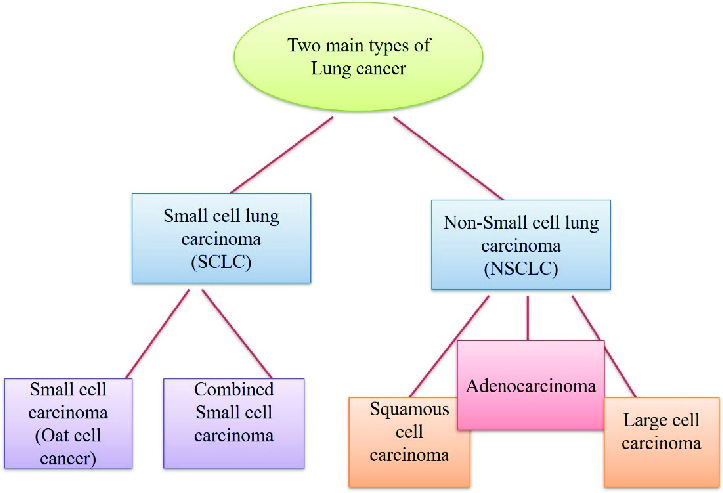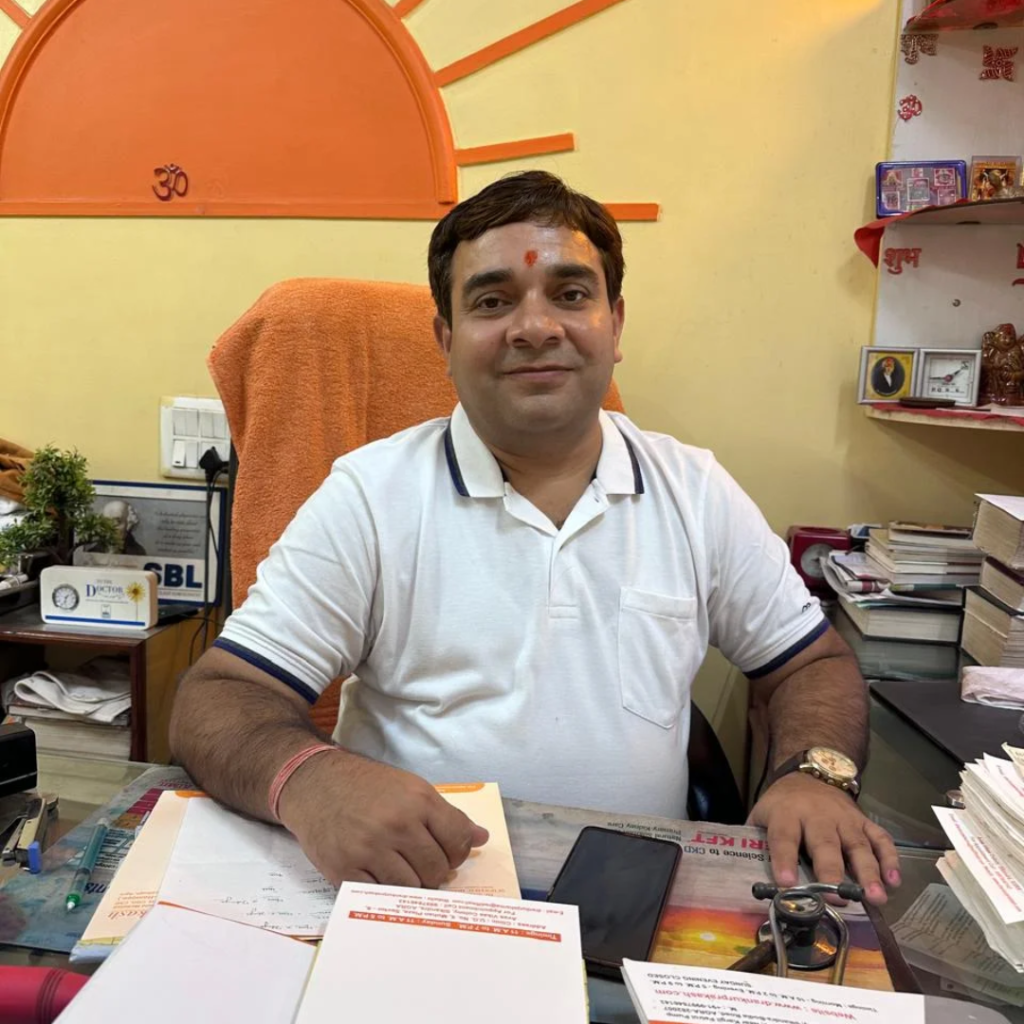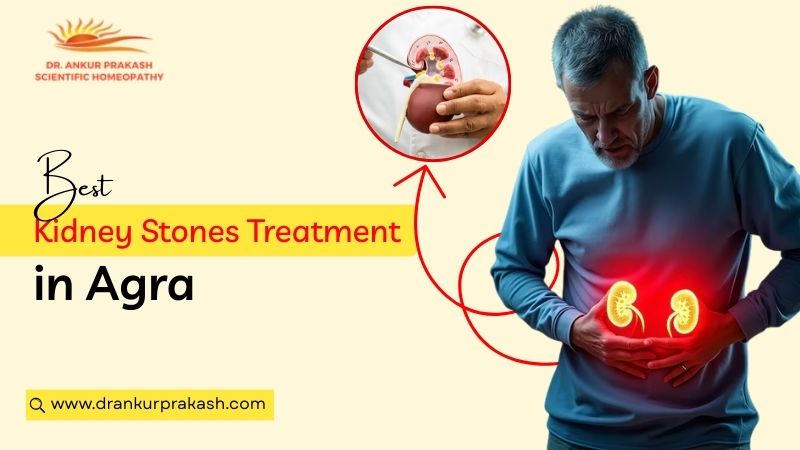Lung cancer is one of the most common and serious types of cancer worldwide. Each year, millions of people are diagnosed with this condition, which can be life-threatening if not treated early. As more individuals look for gentle and holistic healing options, homeopathy has emerged as a complementary path to support lung cancer patients. This blog explores what lung cancer is, its symptoms and causes, and how homeopathy may help as a supportive treatment.
What is Lung Cancer?
Lung cancer is a serious disease that begins when abnormal cells grow uncontrollably in the lungs, forming tumors that interfere with normal breathing and oxygen exchange. Pulmonary cancer ranks among the most widespread cancers globally and is frequently associated with smoking, harmful environmental exposures, or inherited traits. Typical symptoms include a long-lasting cough, chest discomfort, and difficulty breathing. Early detection improves treatment outcomes, making awareness and timely medical attention essential for managing and reducing the risks associated with lung cancer.
It can also be supported with homeopathy as a complementary approach. For specialized care, consulting the best homeopathy doctor in Agra may help in managing symptoms and improving overall well-being.
Types of Lung Cancer
Pulmonary Cancer is classified into different types based on how the cells appear under a microscope. Understanding these types is essential, as they guide diagnosis, treatment options, and recovery outlook. Each type has unique characteristics, growth patterns, and progression rates.

Main Types:
1.Non-Small Cell Lung Cancer (NSCLC)
- The most common type, accounting for nearly 85% of cases.
- Subtypes include adenocarcinoma, squamous cell carcinoma, and large cell carcinoma.
- Usually develops slowly but can spread if not detected early.
2. Small Cell Lung Cancer (SCLC)
- Less common but more aggressive than NSCLC.
- Tends to spread rapidly to other organs.
- Strongly linked to cigarette smoking.
Subtypes of NSCLC:
3. Adenocarcinoma
- Often found in people who smoke but also common among non-smokers.
- Begins in cells that produce mucus in the lungs.
- Typically develops in the outer parts of the lung.
4. Squamous Cell Carcinoma
- Usually starts in the central part of the lungs near the bronchial tubes.
- Strongly associated with long-term smoking.
5. Large Cell Carcinoma
- Can appear in any part of the lung.
Develops and spreads rapidly, which makes treatment more challenging.
Other Types:
6. Lung Carcinoid Tumors
- Rare, slow-growing tumors.
- Can occur in younger patients and are less linked to smoking.
What Causes Lung Cancer?
Pulmonary cancer develops when healthy lung cells undergo abnormal changes and grow uncontrollably, forming tumors that interfere with normal lung function. Various internal and external factors contribute to these changes, increasing the risk of developing this serious condition. Understanding the main causes helps in prevention and early detection.
Major Causes:
Smoking is the primary cause of lung cancer, accounting for the majority of cases. Cigarette smoke contains thousands of toxic substances, many of which are carcinogens. These chemicals damage the delicate lining of the lungs, causing mutations in the DNA of cells. The longer a person smokes and the more cigarettes they consume daily, the higher their risk becomes.
Secondhand Smoke
Individuals who do not smoke but spend time near smokers can still face serious health risks. Breathing in secondhand smoke exposes them to the same toxic chemicals found in cigarettes, which can damage lung tissue over time. Even limited exposure may have harmful effects, while continuous or long-term contact greatly heightens the likelihood of developing lung carcinoma and other respiratory problems.
Environmental Exposure
Certain harmful substances present in the environment can lead to lung carcinoma. Asbestos fibers, arsenic, and radon gas are well-known risk factors. Many people face exposure to such carcinogens at workplaces like mines, factories, or construction sites. Over time, these substances damage lung cells and raise cancer risk.
Family History and Genetics
People with close relatives who had lung carcinoma may have inherited genetic traits that make them more susceptible. Certain genetic mutations weaken the body’s defense against uncontrolled cell growth, thereby increasing risk even in non-smokers.
Air Pollution

Prolonged exposure to polluted air, especially in urban or industrial areas, introduces dangerous particles and chemicals into the lungs. These pollutants can irritate lung tissue and cause mutations, particularly when exposure is continuous over many years.
Radiation Therapy
Patients who have undergone radiation therapy to the chest, often for conditions like breast cancer or lymphoma, may face higher chances of developing lung carcinoma later. Radiation exposure can damage DNA in lung cells, leading to abnormal growth over time.
Homeopathic Treatment for Lung Cancer
Lung cancer is a severe condition that arises when abnormal cells in the lungs grow uncontrollably, leading to tumors and breathing difficulties. Conventional treatments such as surgery, chemotherapy, radiation, and targeted therapy are often the first line of medical care. However, many patients also explore complementary options to improve quality of life, manage symptoms, and support overall well-being.
Homeopathic Treatment for Lung Cancer focuses on strengthening the body’s natural healing ability. Unlike conventional methods that directly target tumors, homeopathy emphasizes treating the person as a whole—considering physical, emotional, and mental health. Remedies are chosen based on individual symptoms, such as persistent cough, chest pain, breathlessness, or fatigue, and aim to reduce discomfort while enhancing vitality.
Some commonly used remedies may help relieve pain, ease breathing problems, or reduce side effects from chemotherapy and radiation. Since homeopathy works on the principle of individualization, no single medicine suits every patient. Instead, a qualified homeopathic doctor carefully assesses the case and prescribes remedies tailored to the person’s condition and constitution. Exploring Homeopathic Treatment for Lung Cancer can provide additional support by focusing on the overall well-being of the patient, not just the disease.
It is important to note that homeopathy should not replace standard medical treatment for Lung carcinoma but can be used alongside it to provide supportive care. With professional guidance, this holistic approach may improve emotional balance, energy levels, and overall resilience, helping patients cope better with their journey.
Homeopathy Medicine for Lung Cancer in India

Lung cancer is a serious condition that affects normal lung function and causes symptoms like persistent cough, chest pain, shortness of breath, and fatigue. While conventional treatments such as surgery, chemotherapy, and radiation are the primary methods of care, many patients seek holistic alternatives for additional support. In this context, Homeopathy Medicine for Lung Cancer in India is gaining attention as a complementary approach that focuses on improving immunity, reducing discomfort, and enhancing overall well-being.
Homeopathic remedies are prescribed based on the individual’s symptoms, lifestyle, and emotional state. A few examples often considered by practitioners include:
Carcinosinum – Used for patients with a family history of cancer or recurring respiratory issues.
Kali Carbonicum – Helpful in managing chest pain, breathing difficulties, and persistent cough.
Phosphorus – Often given to individuals with bleeding tendencies, weakness, and lung irritation.
Homeopathy does not claim to cure lung cancer but may support patients by reducing side effects of conventional therapies and improving quality of life. For safe and effective results, consulting an experienced homeopathy doctor in India is strongly recommended.
Disclaimer: Homeopathy should be considered as supportive care and not a replacement for conventional cancer treatment. Always consult a qualified healthcare professional before starting any treatment.
How Long Can You Live with Lung Cancer?
The length of time someone can live with Lung carcinoma depends on many factors, like the type of cancer, the stage at which it is diagnosed, overall health, and how well treatment works. Some people live only a few months if the cancer is found late, while others live for several years, especially if it is detected early and treated properly. With new treatments and better care, many patients are living longer and with a better quality of life.
What Are the First Signs of Lung Cancer?
The first signs of Lung carcinoma can be subtle. You may notice a cough that doesn’t go away, chest pain, or feeling short of breath even with little activity. Some people might cough up small amounts of blood or have a hoarse voice. Feeling very tired without reason is also common. If these signs last for weeks, it’s important to see a doctor early for a proper check-up.
Take the First Step Toward Healing
Facing cancer can feel overwhelming, but you don’t have to go through it alone. Gentle, supportive care is available to help you manage symptoms and improve your quality of life. By consulting the Best Homeopathy Doctor in India, you can explore holistic ways that work alongside standard treatment, giving comfort and strength during your journey. Remember, early attention and compassionate care can bring hope and better outcomes.








